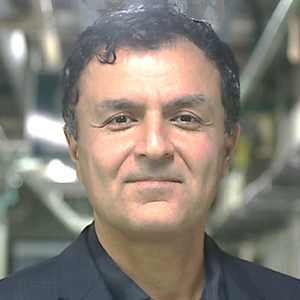
Head of School and Professor
Scholl of Chemical and Biomolecular Engineering
The University of Sydney.
Kourosh Kalantar-Zadeh is a Professor and Head of School of Chemical and Biomolecular Engineering at the University of Sydney. He is also one of the Australian Research Council Laureate Fellows of 2018. Professor Kalantar-Zadeh was a professor of Chemical Engineering at UNSW, and prior to that a Professor of Electronic Engineering at RMIT, Australia. Professor Kalantar-Zadeh is involved in research in the fields of analytical chemistry, materials sciences, gastroenterology, electronics and sensors, and has co-authored of >500 highly cited scientific papers. He is a member of the editorial boards of journals including ACS Applied Nano Materials (associate editor), ACS Sensors, Advanced Materials Technologies, Nanoscale, Applied Surface Science and ACS Nano. Professor Kalantar-Zadeh is best known for his works on ingestible sensors, liquid metals and two-dimensional semiconductors. He led his group to the invention of an ingestible chemical sensor: human gas sensing capsule, one of the breakthroughs in the field of medical devices. Professor Kalantar-Zadeh has received several international awards for his scientific contributions including the 2017 IEEE Sensor Council Achievement, 2018 American Chemical Society Advances in Measurement Science Lectureship awards and 2020 Robert Boyle Prize of Royal Society of Chemistry.
Ingestible Sensors Shaping the Clinical Future
Abstract
Ingestible sensing capsules are rapidly becoming a pivotal technology with the potential to significantly influence health, nutrition, and clinical domains. These noninvasive devices hold great appeal for health experts and consumers alike. Given the widespread availability of smartphones connected to the Internet, the data generated by this technology can be easily viewed and assessed online, accessible to both users and healthcare professionals. The information derived from these capsules is invaluable for revealing the condition of gut health, identifying disorders, and understanding the effects of food, supplements, and environmental changes on the gastrointestinal tract. A distinctive feature of these ingestible sensors is their journey through the gut lumen, granting them access to each organ within the gastrointestinal tract. Consequently, these sensors enable the capture of images and monitoring of luminal fluid, along with the analysis of the contents of each gut segment, including gases, electrolytes, enzymes, metabolites, hormones, and microbial communities. This capability provides an extensive knowledge base about individuals’ health status through crucial gut biomarkers. The talk will present an overview of gut structure, exploring current and emerging digestible technologies, with the focus on gas sensing capsule. It will offer insight into ingestible sensing capsules from both a physiological and technological standpoint, highlighting the potential wealth of information they can yield.
